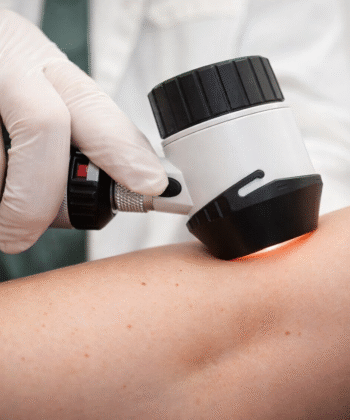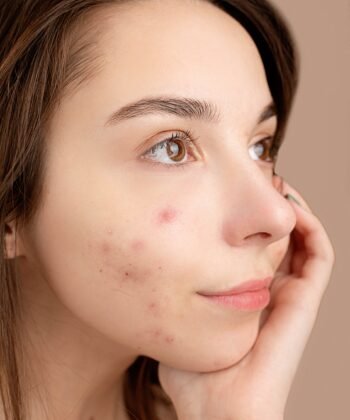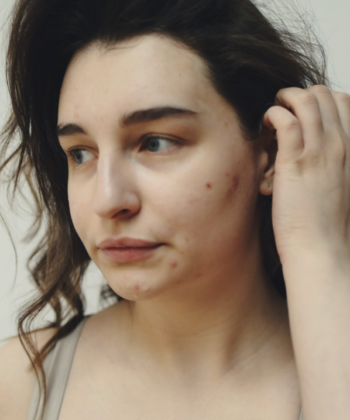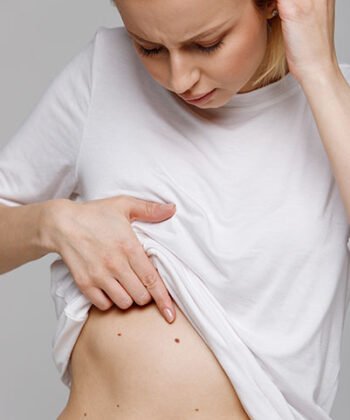
Remote Consultations: Fast, Efficient, and Convenient
Remote consultations are the perfect way to jump the queue and get a quick response from Daniel and his team without the need of travelling to an appointment. Over 90% of consultations are diagnosed and a treatment plan suggested using remote consultation.
Remote Consultations vs. In-Person Consultations
We aim to complete your virtual consultation within 2 working days. There are some skin issues that cannot be safely dealt with by virtual consultation. These may require a face to face consultation. If we feel it’s not safe to have a video consultation for your skin condition then you will be refunded or a face to face consultation can be arranged.
Convenient Prescription Delivery Options for Remote Consultations
If needed prescriptions can be issued to an internet pharmacy for delivery of medication directly to your home. Alternatively a prescription may be able to be sent to your local pharmacy in the UK.
Carebit Patient Portal
The Carebit system is a secure and encrypted online portal through which you can book appointments and store your medical records.
When you are ready, click the ‘BOOK APPOINTMENT’ button at the bottom of the page to be taken to the Carebit Patient Portal.
If you are already a registered patient with The Dermatology Clinic London, you already have a Carebit account and can set a password to access the account after you have chosen an appointment slot.
Otherwise, if you are a new patient you can create an account (register as a patient).
If for any reason you are not able to make your appointment please let us know at least 48 hours prior to your appointment or we may have to charge a cancellation fee.
What our patients say…
Dr Glass put me on a course of medication which was successful in treating this condition. I have now been happily discharged 🙂
Throughout my treatment, I found Dr Glass to be extremely conscientious, caring and thorough. He fully explained all the available treatment options to me and possible side effects. I felt I was properly informed.
He also explained to me that skin is very unpredictable and if I have a predisposition to skin allergies, then flare-ups could recur in the future. If this happens, I would have no hesitation in consulting with Dr Glass again, if need be. I would also have no hesitation in recommending him to others.
His knowledge, expertise and attention to detail, is not only reassuring but enables you to build trust and confidence going forward in whatever treatment path is required.
I have recommend him to family
and friends for diagnosis and treatment, as I believe Daniel is the leading consultant in his field for Northwest London.
When I saw Dr Glass in 2017, he diagnosed and treated my skin issue very swiftly. Within weeks I was looking well but mentally that boosted my confidence too.
I needed to see him again and I was not going anywhere else, as he was the right person to treat my skin condition again. Dr Glass once again diagnosed and treated my skin condition on a different issue very quickly and within 6-7 weeks, my skin feels new.
Thank you once again Dr Glass; I will not hesitate to recommend you to anyone seeking your services as I know they will be in the best care.
Our Fees
| New patient appointment - any surgical treatment or injection will be in addition to consultation fee | £325 |
| Follow up appointment | £275 |
| Cryotherapy – Up to 3 lesions | £190 |
| Cryotherapy – More than 3 lesions | £360 |
| Cortisone injection | £190 |
| Surgery | From £500 (per lesion) |
| Skin cancer surgery | From £700 (per lesion) |
Clinic FAQs
The initial consultation will last 20 or 30 minutes. One of our skin specialists will discuss any concerns you have about your skin, hair and nails and any symptoms that you are experiencing. They will review your medical history and examine any areas of skin that are affected. Often a skin examination is enough to make a diagnosis. In some cases blood tests, skin swabs or skin biopsies may need to be carried out to get a full diagnosis. For some skin conditions treatment can be prescribed immediately and this can be picked up at a pharmacy on the same day. In some situations treatment can only be started after investigation. In some cases follow up checks may be needed to monitor the progress and effectiveness of treatments. Once the first consultation is conducted, the patient should come away with a clear understanding of their skin condition and the treatment options that are available to them.
You can book appointments directly with our clinic and do not need a referral, if you are self-funding. If you are planning on using health insurance to cover the cost of being seen, the insurer will usually require a referral from a general practitioner before authorising your appointment.
Under some circumstances, it is possible to have a procedure on the same day as your appointment. If the patient is self-paying and providing the doctor has sufficient time and the minor procedure room is available. If the patient is insured, approval from the insurer will be needed before any procedures can occur. For non-surgical procedures like cryotherapy and injections, it can be possible to have treatment on the same day as the appointment - this will be at the doctor's discretion.
As it is a private clinic we cannot give NHS prescriptions. We will communicate with your General Practitioner or write to them if you wish. Your General Practitioner may be able to prescribe some of the treatments that we recommend. However, there are some medications that GPs are not able to prescribe; that can only be prescribed by Consultant Dermatologists. Some medications will not be available on the NHS.
Most initial consultations will take 20 minutes. This will include a discussion with the Consultant Dermatologist and an examination of your skin issue. Follow up appointments usually take 10 - 15 minutes approximately.
In many situations, our Dermatologists can prescribe tablets or creams during the first consultation, so treatment can begin immediately. A private prescription is issued and the pharmacist will charge for the cost of the medication prescribed which may be higher than the standard NHS charge. Some injections and cryotherapy can also be done on the same day. There will be a charge for these additional treatments.
During your procedure, your Dermatologist will provide you with a full aftercare plan. In general, the biopsy site will be dressed after the surgery and the dressing left in place for the first day or two before removing and washing. It is important that your wound is kept clean. For further information please click on this link.
Cryotherapy is a controlled cold burn using liquid nitrogen which targets abnormal skin tissues. It is used to treat many skin conditions such as warts, verrucas, skin tags, pre-cancerous cells and some superficial skin cancers. Some pain and discomfort may be experienced during the procedure depending on the duration of the freeze and the size of the area being treated.
A skin biopsy is a routine procedure that dermatologists carry out. It involves removing a small sample of skin so that it can be tested. The sample will help dermatologists in the diagnosis of diseases such as skin cancer and other skin problems. A small anaesthetic will be introduced so that the patient does not experience pain during the procedure.. Depending on the type of biopsy you may or may not need stitches. Your dermatologist will inform you of the correct aftercare procedures once your biopsy is completed.
Yes, our Dermatologists will be able to advise on skincare products to use and which ones to avoid based upon your skin type and skin concern.
Yes, there are a number of different treatments for skin pigmentation typically involving creams and sometimes tablets. Some pigmented conditions may benefit from laser treatment and there is a laser technician at our Harley Street facility.
Primarily our clinic focuses on medical dermatology and health issues related to the skin, hair and nails. However, there are a number of instances where we treat patients for cosmetic reasons. The most common of which may be mole removal.
Learn more about skin conditions

The Importance of Checking Your Moles
Protect yourself from melanoma with regular self-assessment. Learn the signs to look out for and when to see a dermatologist. Read more for essential insights.

BCC vs SCC
A skin cancer diagnosis raises immediate questions. If you've been diagnosed with basal cell carcinoma (BCC) or squamous cell carcinoma (SCC), you need clear information about your condition and treatment options.

Melanoma and Ultraviolet Light: What’s the Link?
According to Cancer Research UK, around 85% of melanomas in the UK are caused by too much ultraviolet radiation. The number of people being diagnosed with this type of cancer has increased and is now the 5th most common cancer in the UK.

The Truth About Acne
Acne is a debilitating disease that affects over 18 million people in the UK. A lot of people say it’s a teenage issue that you can grow out of, but it affects many people right through to their adult life and can completely take over people’s lives.

Pregnancy Acne: What Are the Causes?
Pregnancy acne, stemming from hormonal shifts, affects up to 43% of expectant mothers, often causing breakouts and discomfort. Learn about the causes, prevention tips, and expert solutions at The Dermatology Clinic London.

Acne in Teens and Young Adolescents
One of the reasons teenage acne flares is as a result of hormonal changes in the body that cause the glands under the skin to produce excess sebum. It is these hormones that play a major role in influencing how the sebaceous glands function.

Skin Allergies – Why they Happen and How to Take Care of Them
Allergies are the most common chronic disorder in the United Kingdom; it is estimated that around a quarter of brits will be affected by some kind of allergy during their lives, a number that is expected to increase exponentially going forward.

Why Does My Mole Itch?
Itching or pruritus is often a sign of dryness or irritation of the skin’s surface. As a result, our skin’s nerve endings, also known as pruriceptors, are stimulated.

The Impact of Diet on Acne: What You Eat Matters
Diet plays a critical factor in a person’s overall health and well-being. People with a healthy balanced diet tend to live longer and have a lower risk of developing serious health problems such as cardiovascular disease and type 2 diabetes.




